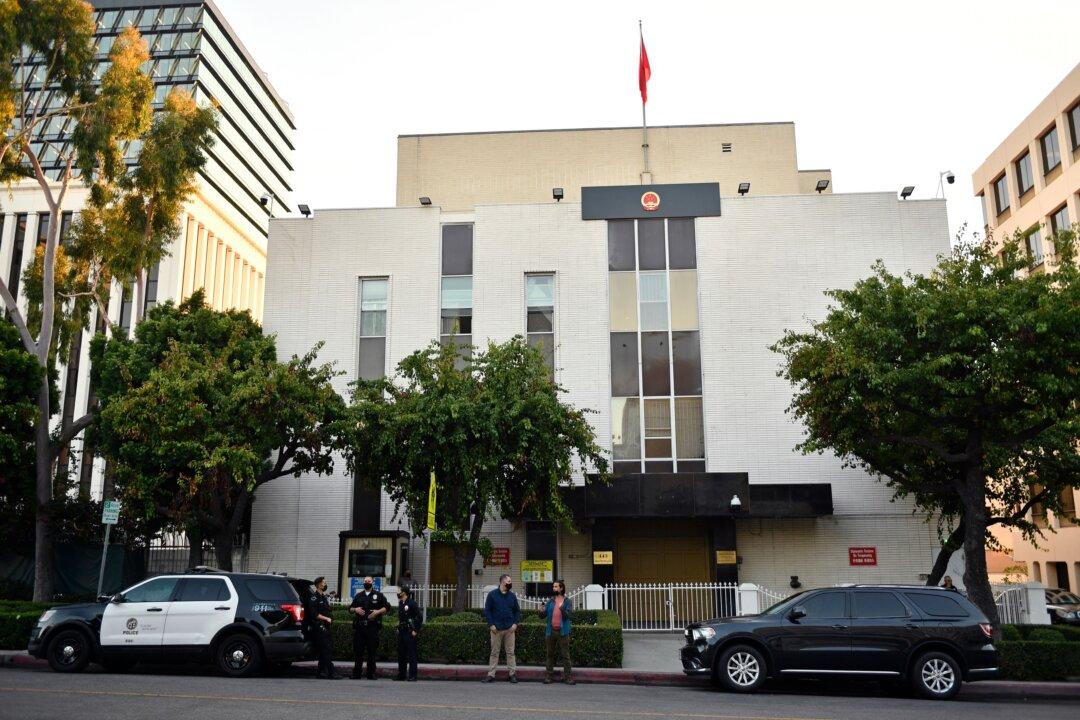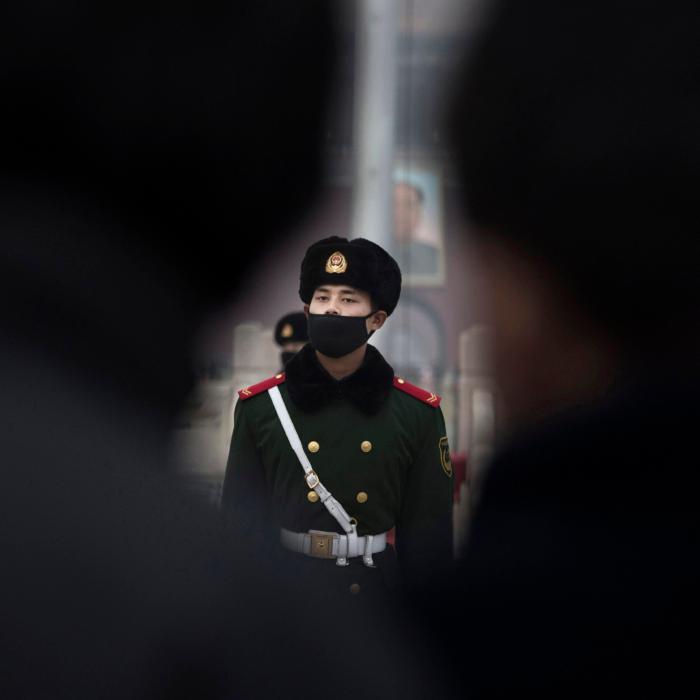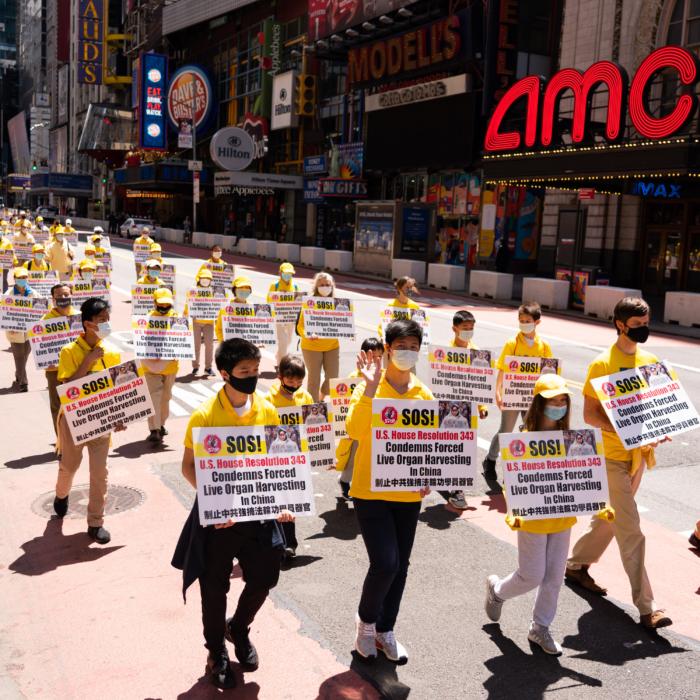It was a cool, dark evening—as mild as winter could be in South Africa. Nine people exited the gates of the Johannesburg International Airport, jumped into two rental cars, and set off on their way to the neighboring capital of Pretoria.
They came with a mission: to file a lawsuit against two visiting Chinese officials for their role in orchestrating a massive persecution campaign against practitioners of the meditation practice Falun Gong in China. It quite naturally fell on David Liang, a cabbie then living in Australia, to drive one of the rental cars.
About 30 miles into the trip, Liang noticed a light-colored car approaching from behind. As it was passing, he heard a noise, and suddenly felt a searing pain in his feet. At the same moment, the car’s tires blew out.
He realized he had been shot, and the car had been hit by gunfire. The bullets went straight through both of his feet, shattering the bones in his right foot and leaving a hole the size of a golf ball.
The overwhelming pain made it impossible for him to step on the brakes and nearly caused him to lose consciousness.
The car was uncontrollably hurtling down the road at about 75 miles per hour, veering increasingly closer to oncoming traffic. By sheer miracle, the car didn’t flip over or crash, and gradually came to a stop on the shoulder. Liang couldn’t open the door; he vaguely remembers somebody helping him to get to a nearby hospital.

While news of the June 2004 shooting went around the world, it was neither the first nor the last time that Chinese dissidents have found themselves under attack overseas.
Incidents have been reported across the globe, including in Asia, Europe, and, repeatedly, the United States.
In 2001, three Asian men exited a black SUV in front of the Chinese Consulate in Chicago. They made derogatory comments and gestures toward a group of Falun Gong practitioners across the street who were protesting the CCP’s persecution. When one of the protesters, Lin Fang, took out a camcorder and started recording, the men rushed toward him.
Lin jumped up and began to run away, with the two men in hot pursuit. About a block away, they pushed him against a chain-link fence, snatched the camcorder, and smashed it on the pavement. Then they pummeled him with punches to his head, before the onslaught was finally broken up by three passersby. The attackers ran back to their car and took off.
In 2006, several Asian men forced their way into the Atlanta apartment of Peter Yuan Li, a Falun Gong practitioner and computer engineer who at the time was the chief technical officer at The Epoch Times. The men, armed with a knife and a handgun, brutally beat him, tied his arms and legs, and covered his mouth, ears, and eyes with tape. They then ransacked his home, stealing two computers but leaving other valuables behind.
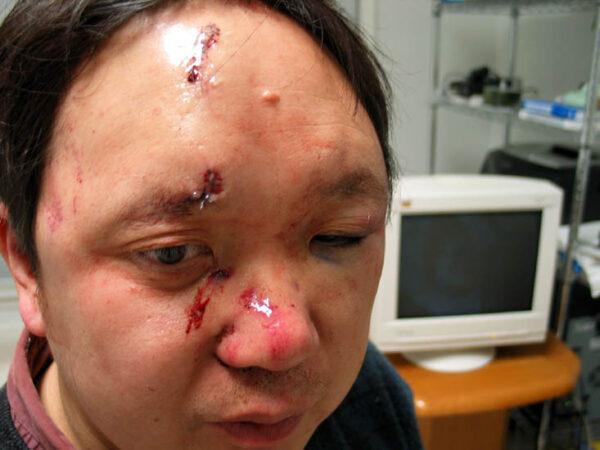
Similar incidents, including break-ins and beatings, also have occurred in New York and San Francisco.
Sometimes, the attacks can be traced to the Chinese Communist Party (CCP) explicitly; other times, the connection is more opaque. Overall, however, the pattern is clear.
“It’s part of the manipulation and control by the CCP of Chinese Americans,” said Casey Fleming, CEO of BlackOps Partners and a counterintelligence expert.
“It’s to control them on U.S. soil for psychological control as well as action.”
It’s just one method of many in the CCP’s arsenal of covert overseas operations, including espionage, theft of research and trade secrets, and extensive influence and propaganda operations, Fleming and other experts told The Epoch Times.
Attacks on dissidents, who are usually U.S. citizens, are the most flagrant, flaunting the CCP’s ability to go after anyone, anywhere.
“The CCP ... is doing all they can to undermine our sovereignty, silence all dissent, even in our country,” said Rep. Dan Newhouse (R-Wash.), member of the House Select Committee on the Chinese Communist Party, which was set up this year.
“Much of this type of covert influence activity has been conducted by Beijing for decades,” said Nicholas Eftimiades, a veteran of the CIA, State Department, and Defense Intelligence Agency and an expert on CCP overseas operations tactics and strategy.
“They’ve always gone after dissidents, what they call the ‘five poisons,’” he said, referring to CCP jargon for issues that the regime considers the most sensitive to its totalitarian control: Taiwan, the democracy movement, Tibet, Uyghur Muslims, and Falun Gong.
The CCP’s espionage operations on U.S. soil have been so unscrupulous that Chinese dissidents have come to treat them as ubiquitous, he said.
“They basically assume just about everything they say, or do or plan, is being learned by Beijing—being reported back,” he said.
Shift in Priorities
Last month, the FBI and the Department of Justice (DOJ) announced charges in New York against two Chinese expats, John Chen and Lin Feng, for trying to bribe the IRS to investigate and strip the nonprofit status from an entity run and maintained by Falun Gong practitioners.Notably, the indictment indicates that the bureau expended significant resources on the case, including the use of an undercover agent posing as an IRS employee.
“An undercover case is pretty much the highest resource-intensive type of case there is,” former undercover FBI agent Marc Ruskin said.
The DOJ statement announcing the charges included comments from the whole top level of federal law enforcement—Attorney General Merrick Garland, his deputy Lisa Monaco, and FBI Director Christopher Wray, as well as his deputy, Paul Abbate.
“The FBI has made a clear shift in what they’re investigating,” Eftimiades noted.
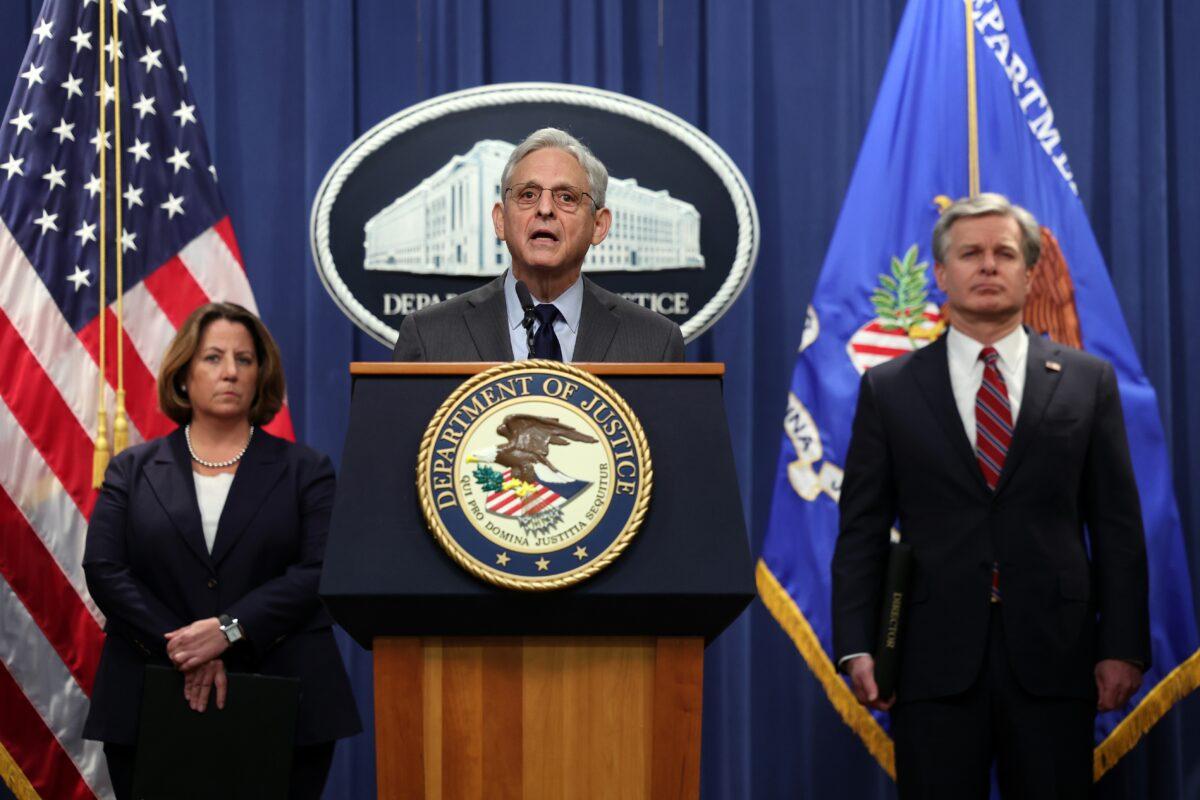
What caused the shift, however, is less clear, as the FBI appears to have long been aware of the CCP’s activities.
“The U.S. government hasn’t done anything about it up until recently,” Eftimiades stated.
Lin Fang of Chicago intimated that after he was attacked, he had multiple conversations with FBI agents, providing them with information about the incident and the people involved.
“They clearly understood what [the CCP] were doing, but it kind of felt like their hands were tied,” he said. “They were freely collecting the information, they were freely writing their reports, they knew who was behind all that had happened, but they chose not to do anything.”
“Every time when we had some activity, a protest, this guy would show up and interfere with our activity or argue with us or harass us,” he said.
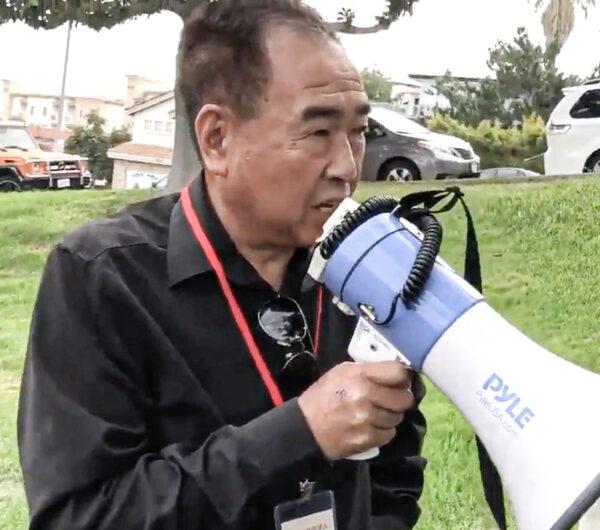
The indictment appears to confirm Chen’s longstanding role. In one recorded call, Chen urged the undercover agent to “trust these friends” Chen had in the Chinese regime leadership.
Modus Operandi
The indictment offers a look into the CCP’s foreign interference cookbook. It details how Chen proposed the idea of bribing the IRS and then allegedly sought approval from a CCP official in China. The FBI further alleged Chen brought money for the bribe from China in cash—$5,000 as a down payment, with another $45,000 promised after the scheme’s successful completion.“Leadership ... is very generous,” Chen told another individual in a recorded phone call.
“After this-this-this thing is done ... reward for work will surely be given at that time,” he said in another recorded call.
Operations of this sort would usually be conducted through the CCP’s 610 Office, or through the Ministry of Public Security, the Ministry of State Security, and the United Front Work Department, Eftimiades said.
The 610 Office, named for its founding date of June 10, 1999, is the CCP agency where “efforts to repress the Falun Gong are centralized,” the indictment stated. Chen referred to his CCP overseers as “Tianjin”—the Chinese city where the 610 Office was known to be based, the FBI said.
Sometimes, CCP agents get involved personally, and there have been some cases of CCP officers getting caught operating on U.S. soil.
“You do have very, very active involvement—we have that. We have cases of MSS [Ministry of State Security] officers, retired MSS officers, active consulate members, all recruiting and working with sources,” Eftimiades said.
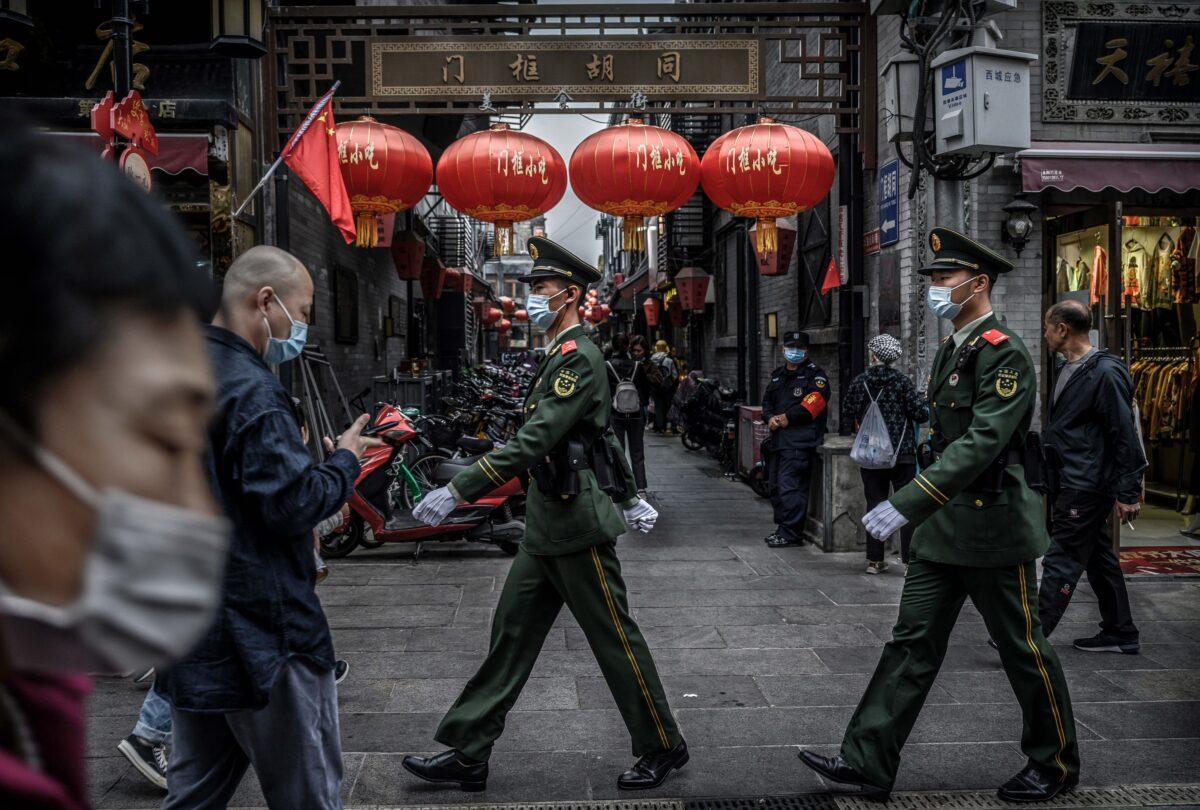
Oftentimes, however, the operations would be conducted by third parties on a basis that resembles a contract or freelance relationship.
“They really make it a capitalistic venture, which is probably one of the greatest ironies of history,” he said.
There’s a difference between how the West’s and the CCP’s foreign intelligence operate.
“The Western services have traditionally employed spies, and they typically go after foreign intelligence services, believing they can learn the most from them,” Eftimiades said.
The CCP does that, too, “but they do far more,” he said. “They go after companies, they go after dissident organizations, they go after politicians. And in order to do that, they employ a whole-of-society approach.”
That means “all segments of Chinese society, whether it be academicians or whether it be infiltration of dissident organizations,” he said.
“They use all the mechanisms that they can to conduct espionage and covert action against foreign governments and societies. What you’re seeing now here is just a manifestation of that.”
CCP leader Xi Jinping recently called on all Chinese expats to vow fealty to the “motherland,” Fleming noted.
“They want to treat them much like sleeper cells,” he said. “They view Chinese Americans and Chinese Brits and Chinese Canadians as an extension of the Chinese Communist Party, or at least in service to and in obligation to the Chinese Communist Party back in China.”
These efforts have been “amped up” recently with what Fleming sees as Xi’s preparation for an invasion of Taiwan, although he made clear such efforts have long been among CCP’s tactics.
Efforts to silence dissent overseas directly tie into the effort to control overseas Chinese communities more broadly, he said.
“It’s all about manipulation and control and keeping the truth on the Communist Party under the rug, and to keep any dissenters from exposing the Chinese Communist Party,” he said.
In the end, those willing to do the CCP’s dirty work are themselves being exploited, accruing liability for what is often a relatively meager reward, according to Eftimiades.
“I wouldn’t have taken the job if I was the asset,“ he said. ”You’re asking the guy to take a tremendous risk and then coming up with chump change.
More Comprehensive Approach
While Eftimiades sees the FBI’s efforts to counter the CCP positively, he hopes the United States will counter the regime’s activities far more comprehensively.The government needs to “bring forth all the mechanisms of national power or even societal power ... to try and stop this type of behavior,” he said.
The government should formulate what it wants the relationship with China to look like in 10 years, how to achieve that goal, and how to measure progress toward it, he said. The plan should involve all federal agencies and even state agencies and shouldn’t be limited to law enforcement. It should include areas such as China’s access to U.S. stock exchanges, U.S. investments in China, and joint ventures between American and Chinese companies.
Despite some efforts of both the Trump and Biden administrations to curb sensitive entanglements with China, much remains to be done, in his view.
Many Chinese companies and research institutions that aid CCP military programs are still allowed to do business with the United States, and Americans are allowed to invest in them. The U.S. government bans such entities from buying sensitive American technologies, but they can still partner with U.S. researchers to develop such technologies, according to Eftimiades.
“Tell me how it makes sense that you can say you can’t export technology to this company, because it’s working with the military, but you can do a joint research project to develop advanced technologies,” he said.
“There are a lot of big problems. They require a lot of ... thought in all these categories.“ This means that the U.S. response can’t follow established patterns, such as when ”something happens in law enforcement, the law enforcement community responds; something happens in finance, and the [Securities and Exchange Commission] or the financial community responds.”
“China doesn’t work that way,” he said. “China works strategically, pulling levers in a unified approach, a whole-of-society approach. The United States has to be a bit more responsive in that way.”
